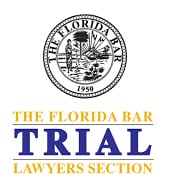In Florida, a trespasser is someone who enters or remains on one’s property without the owner’s consent. While a property owner has a “duty of care” to ensure the property is safe for authorized visitors, this duty is much different when it comes to trespassers, but this gray area can cause a lot of confusion.
Baker Legal Team can help you with any questions you may have surrounding trespassing and liability claims in Florida, along with figuring out who may be at fault. Trespassing laws can get confusing, but we are here to help.
Florida Laws on Trespassing
In Florida, a trespasser is defined as someone who “without being authorized, licensed, or invited, willfully enters or remains in any structure or … is warned by the owner or lessee of the premises, or by a person authorized by the owner or lessee, to depart and refuses to do so.”
In other words, a trespasser is someone who enters or remains on the property without the owner’s consent. This includes both public and private property. However, filing a lawsuit against the city, county, or state government in Florida can be difficult. This is because the government has what’s called “sovereign immunity,” which protects it from being sued in most cases. The same is not true for private property owners.
In general, there are three types of trespass in Florida:
- Trespass in a Structure or Conveyance: This occurs when someone unlawfully enters or remains in a building or vehicle.
- Trespass on Property Other Than a Structure or Conveyance: This is when someone unlawfully enters or remains on any other type of property, such as vacant land.
- Trespass in a Conveyance: This is when someone unlawfully enters or remains in a vehicle that is not their own.
Simply being on the property without permission is enough to constitute trespassing. But, the extent to which this is true can depend on several factors. For example, if the trespasser is the mail person, the court may find that the mail person had a “legal duty” to enter the property, and thus, did not commit a crime.
Florida Law on Duty of Care for Property Owners
In Florida, property owners have a duty of care to ensure that their property is safe for authorized visitors. This duty of care requires the property owner to take reasonable steps to protect visitors from foreseeable risks of injury. If there is a dangerous condition on the property, the property owner must either fix the condition or warn visitors of the danger. If the property owner does neither, they may be held liable if a visitor is injured as a result of the dangerous condition.
Examples of dangerous conditions that property owners should fix to ensure safety include things that a reasonable person would consider a hazard, such as a hole in the ground, a hidden ditch, ice on the pavement, or a dangerous animal.
However, this duty of care is much different when it comes to trespassers. In general, property owners do not have a duty to protect trespassers from injuries on their property. But, this clear concept becomes a little more clouded in certain situations.
Situations That Can Lead to a Trespasser Filing a Valid Personal Injury Claim
Surprisingly, there are a few situations in which a trespasser can file a successful premises liability claim against a property owner in Florida. However, these situations are relatively rare and usually involve extenuating circumstances. The most common situations in which a trespasser can file a premises liability claim are:
The Person Was Invited, But Then Asked to Leave
As mentioned above, a property owner has a duty of care to the people they invite onto their property. This duty of care extends to people who are initially invited onto the property but then asked to leave.
For example, if you invite a friend over to your house for dinner and they overstay their welcome, you can ask them to leave. But, if they refuse to leave and you force them out, they could potentially file a personal injury claim against you if they became injured in the process.
The Property Owner Created a Dangerous Condition
If the property owner created a dangerous condition that led to the trespasser’s injuries, they may be held liable, even if the trespasser was not invited onto the property.
For example, let’s say you have a pool in your backyard, but it is not secured by a gate or other means to keep out trespassers. If a child trespasses onto your property and drowns in your pool, you could be held liable for their death, even though they were not invited onto your property.
The Property Owner Knew About a Dangerous Condition But Didn’t Fix it
If the property owner knew about the dangerous condition but did not take steps to fix it or warn visitors, they could be held liable if someone is injured as a result.
For example, let’s say you have a loose step on your porch that you know about but haven’t fixed. If a neighbor comes over and trips on the step, they could file a personal injury claim against you, even though they were not invited onto your property.
Speak to a Knowledgeable Florida Personal Injury Attorney
Because of these gray areas in the law, having an experienced personal injury lawyer on your side is crucial if you’ve been injured while trespassing. If you were an invited guest who was then asked to leave and was injured as a result, you may have a case.
If you believe that the property owner created a dangerous condition that harmed you while on their property, you should speak with an attorney at Baker Legal Team. You may still have the right to recover medical bills, lost compensation, and more. Contact us online or call (561) 320-0000 to get a free initial consultation today!











